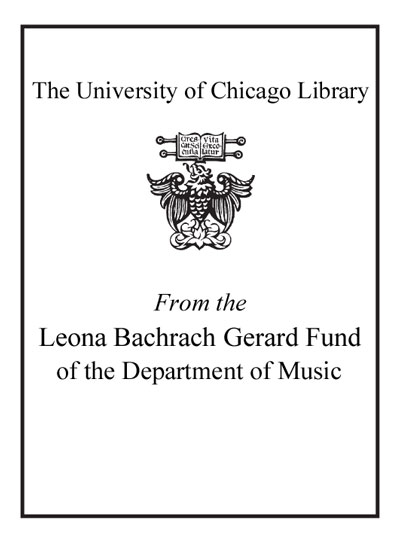Review by Choice Review
German composer Englebert Humperdinck (1854--1921) is remembered chiefly for his three-act opera Hänsel und Gretel. First performed in Weimar before Christmas 1893, the opera is still performed around Christmas time. It is the only one of Humperdinck's works heard today, although he wrote six operas, two string quartets, song cycles, and other compositions. Melton's biography eclipses the only other biographical account of Humperdinck in English, by Ian Denley in Grove Music Online. Drawing on family archives, Melton's biography, replete with musical illustrations and photographs, adds extensively to knowledge about Humperdinck. Melton tells the story of a composer who found his own voice in spite of Wagner, with whom he was associated. Humperdinck became a respected teacher and composer, only to be overshadowed by his near contemporary and friend Richard Strauss. Melton provides, for the first time, a catalog of Humperdinck's works and an index of his compositions. The impression this biography gives is not only one of neglect but of overwhelming sadness as, in footnotes, Melton reveals that the final resting place of many of Humperdinck's close associates and students was Auschwitz. A valuable resource for those interested in late 19th-century and 20th-century music and history. Summing Up: Recommended. Lower-division undergraduates through faculty; professionals; general readers. --William Baker, emeritus, Northern Illinois University
Copyright American Library Association, used with permission.
Review by Choice Review

